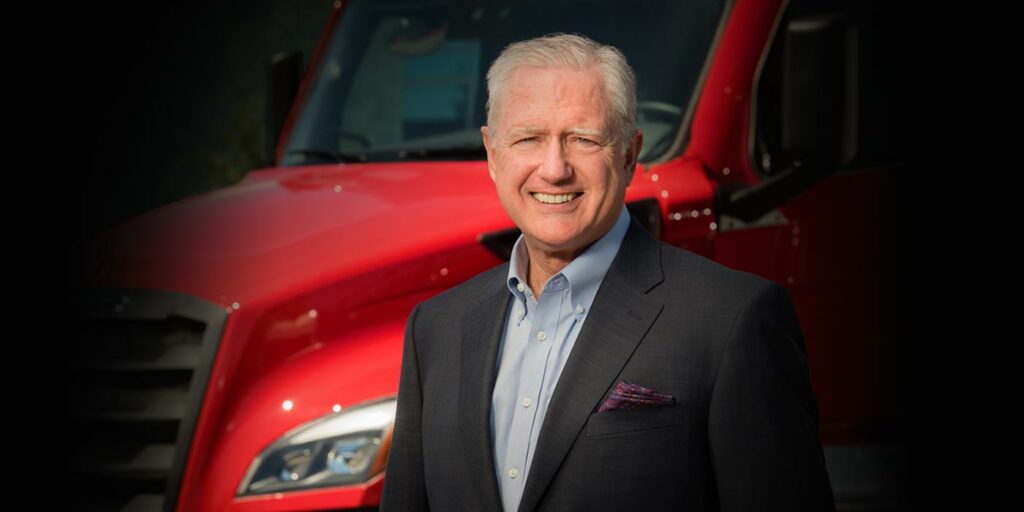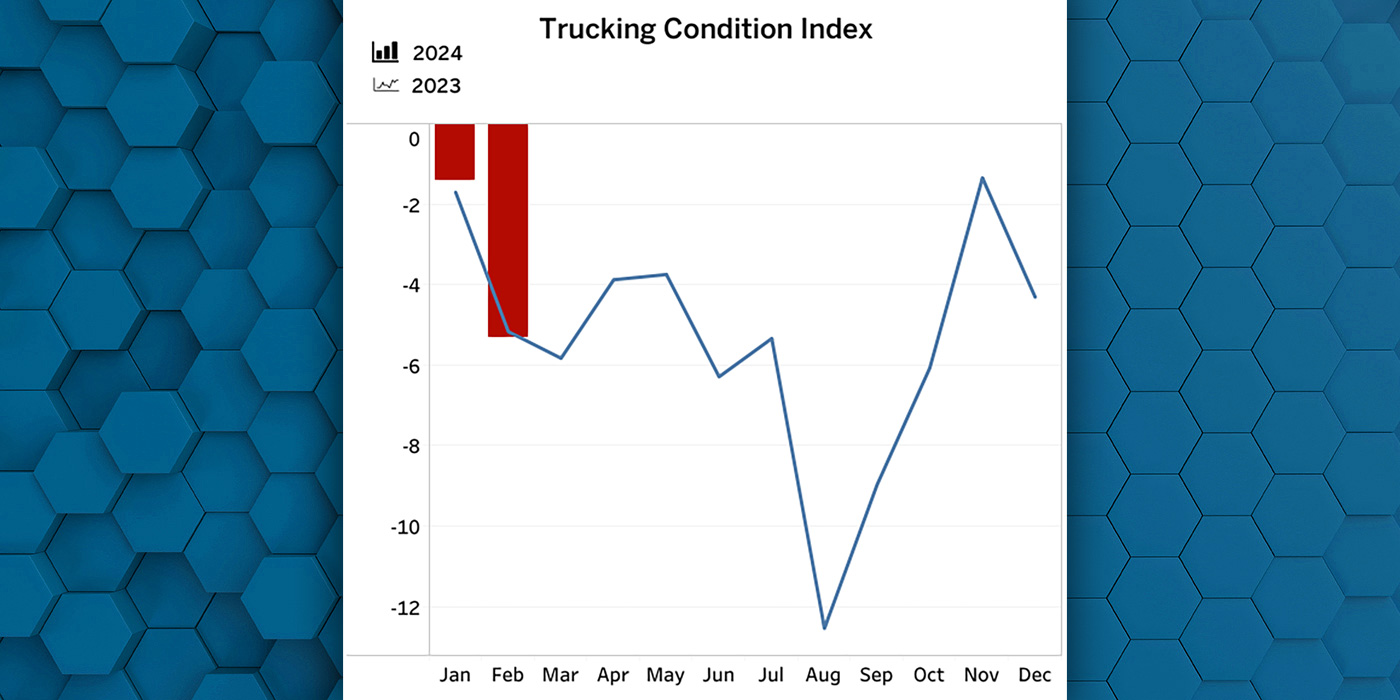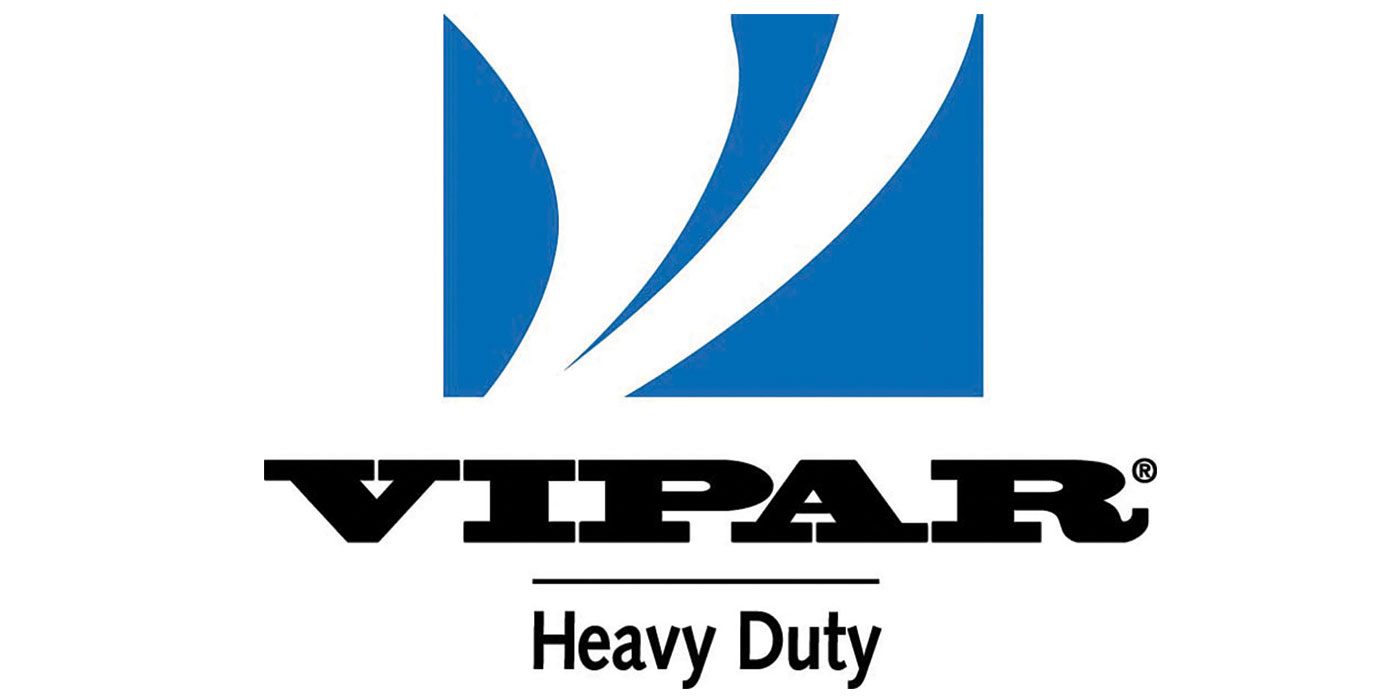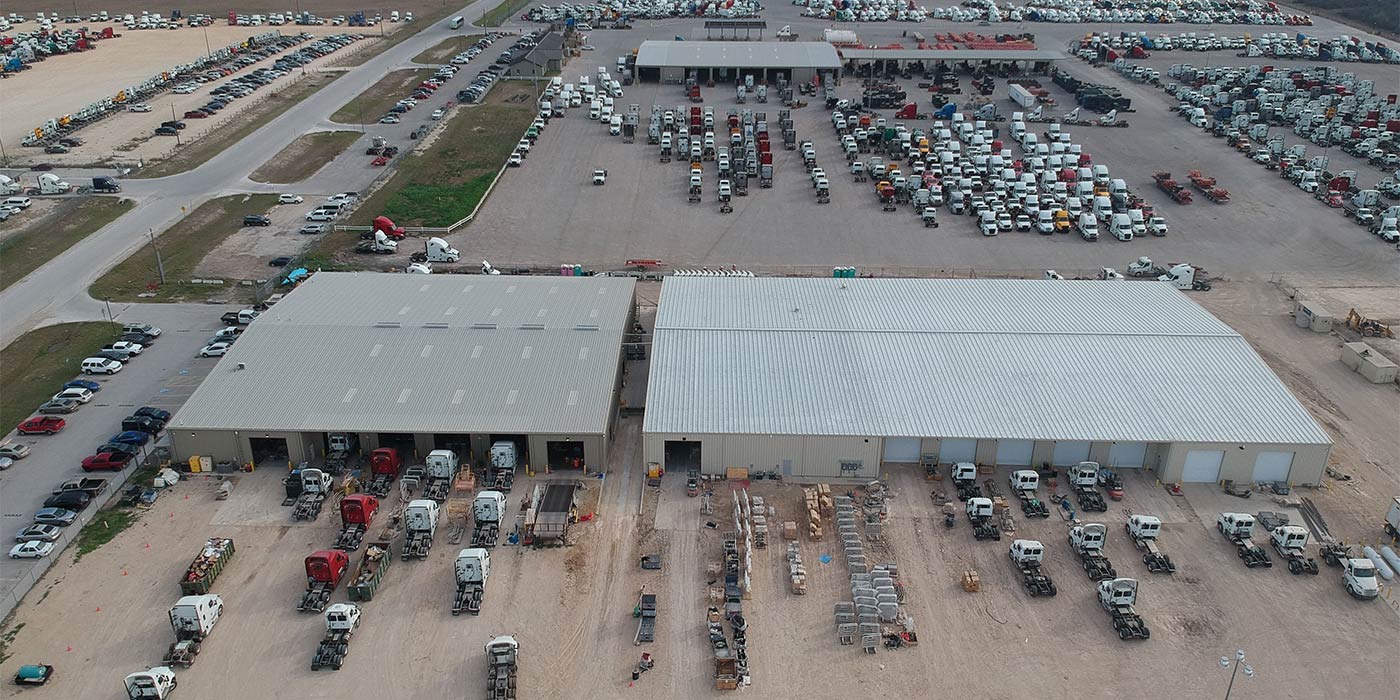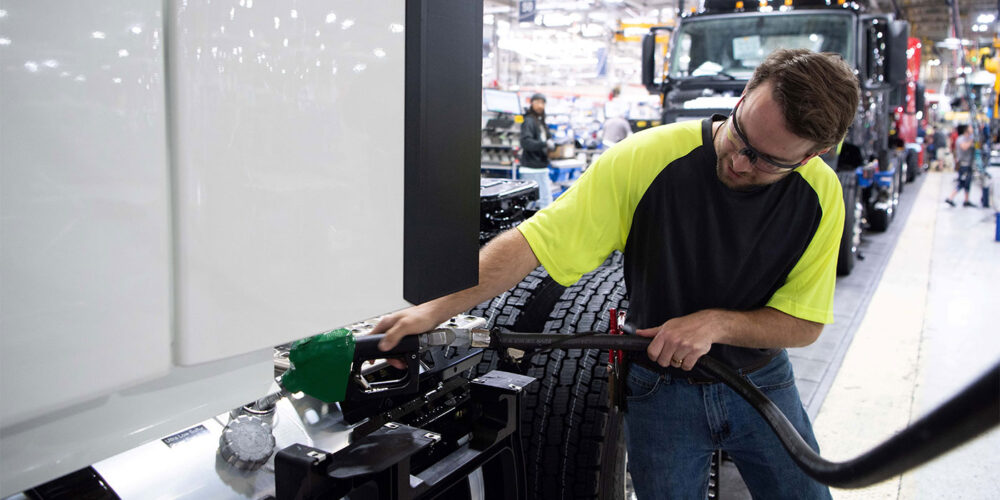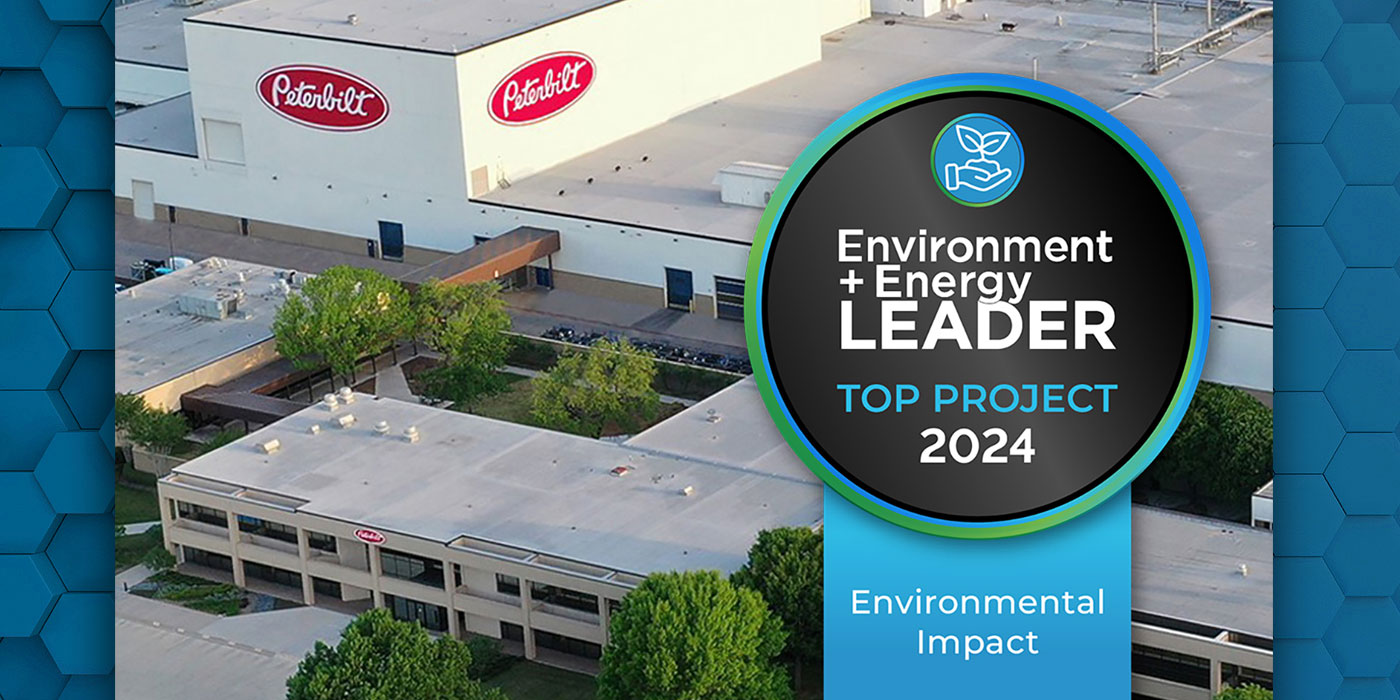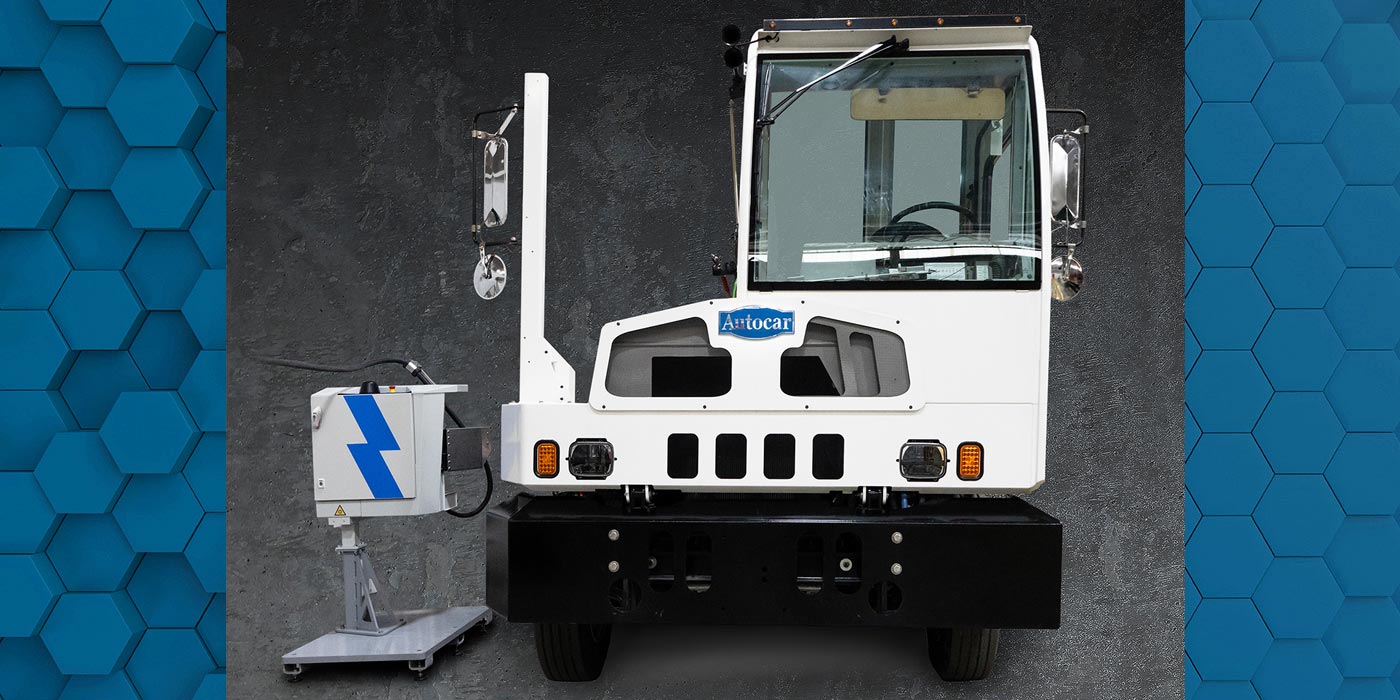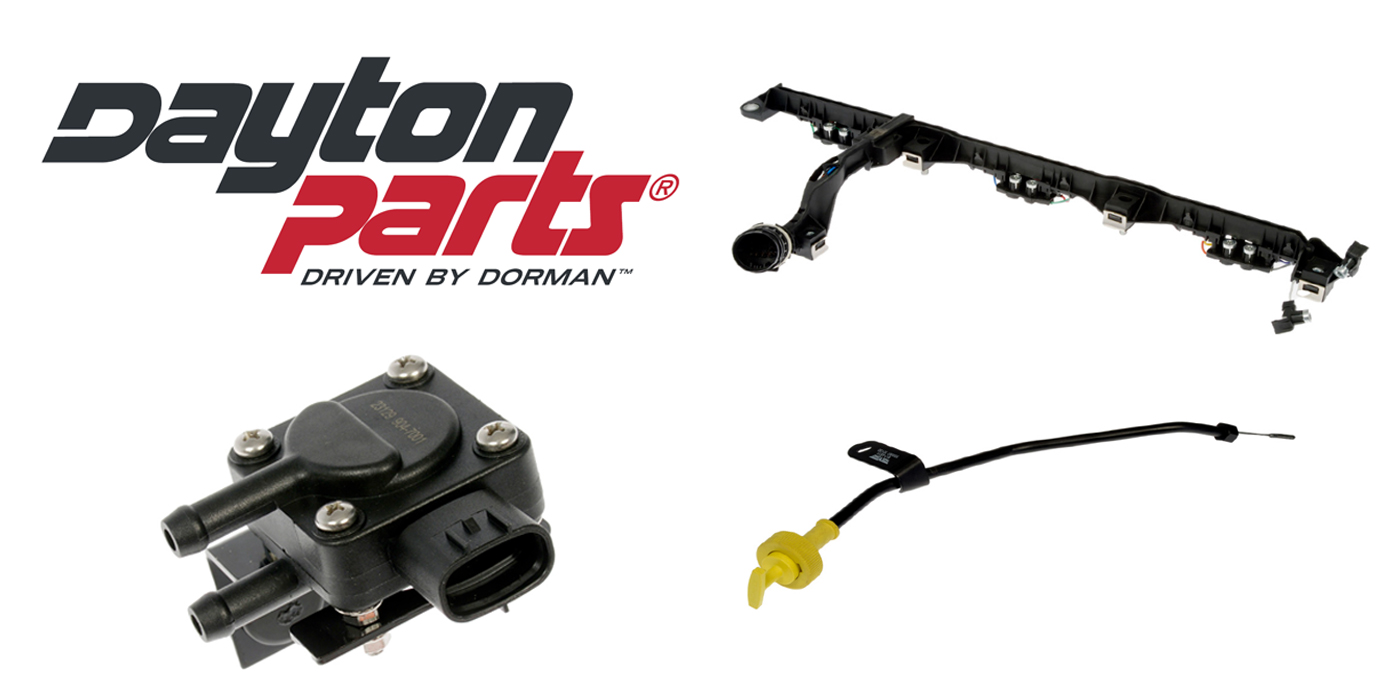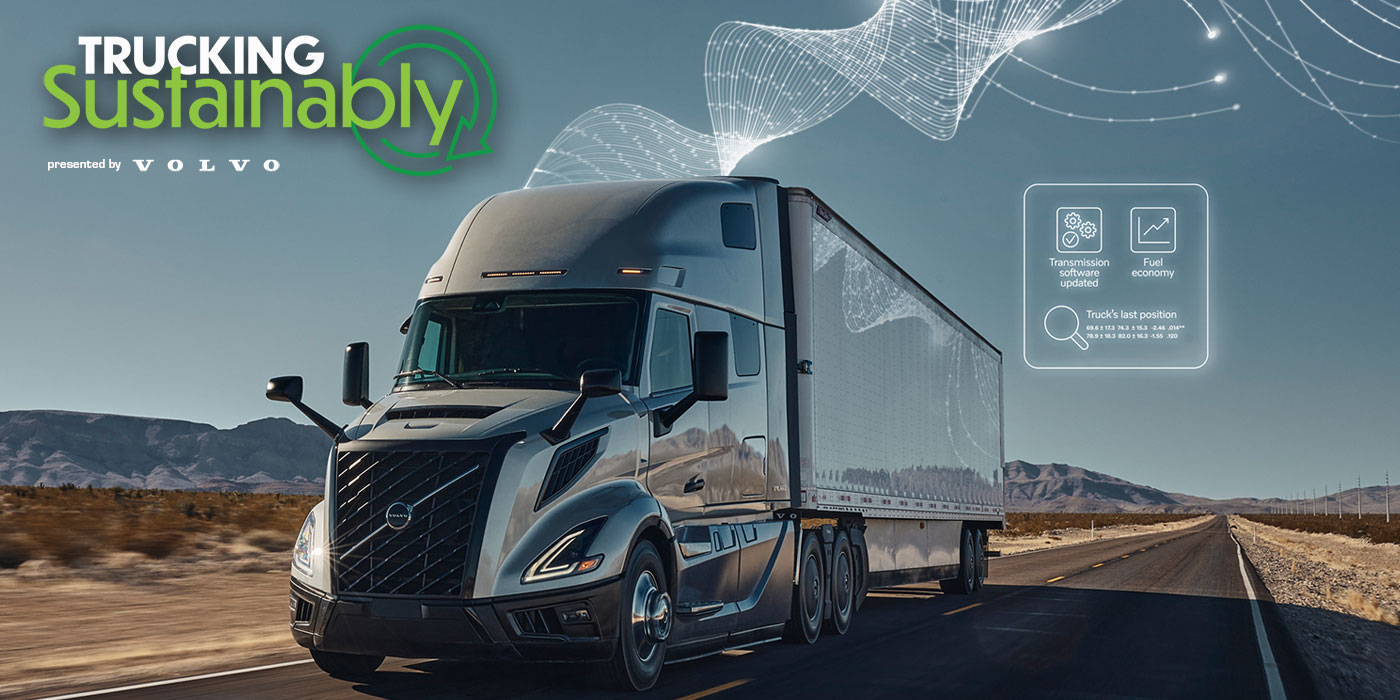The trucking industry is walking a tightrope between two tentpole talking points–the forward-looking innovation that will drive emissions to zero and the solutions and products that are delivering goods today. For Daimler Truck North America’s part, last year’s launch of the production series Freightliner eCascadia was the opening overture for the start of what could be called the Sustainability Era–a time in which DTNA pledged a zero-emissions lineup by the end of 2039. The year also held the unveiling of the Freightliner M2 and SD Plus Series medium-duty trucks, the on-highway Western Star 57X and the Detroit DD15 diesel engine Gen 5.
With electric trucks that have a long road of adoption ahead of them and new diesel-powered offerings ready to roll off the production line this year, John O’Leary, Daimler Truck North America (DTNA) president, chief executive officer, takes a pragmatic approach when talking about the trucking industry. He started with a look back at 2022.
“Stability despite headwinds–ultimately we weathered immense headwinds in the supply chain but still delivered 186,717 units, an increase of 15.2% over last year,” he said, noting that more details will be available when DTNA releases financials in March. (Remember: The OEM is its own public company now.) “Looking ahead, respecting that my predictions are subject to a lot of ‘What ifs’, 2023 output will look a lot like 2022. A healthy backlog remains, not just for DTNA, but the entire industry. Class 8 [orders] are elevated; Class 6 to 7 [truck orders] are particularly high in 2023.”
O’Leary noted that supply chain challenges are getting more manageable–semiconductors are getting easier to come by and while the end of last year brought challenges in finding frame rails, tires, wheels and brakes, the end of the year holiday shutdown let suppliers catch up.
“The question becomes: Is it sustainable? Did they solve their root cause problems and now they’re able to put their output at a higher level or did that just work down their problem and it starts all over again?” he explained. “We’ll see how that goes, but I would say we’re off to a pretty strong start in January.”
So let’s see where the year takes us as O’Leary looks to the future of trucking and meeting the demands of today, all while firmly rooted in reality.
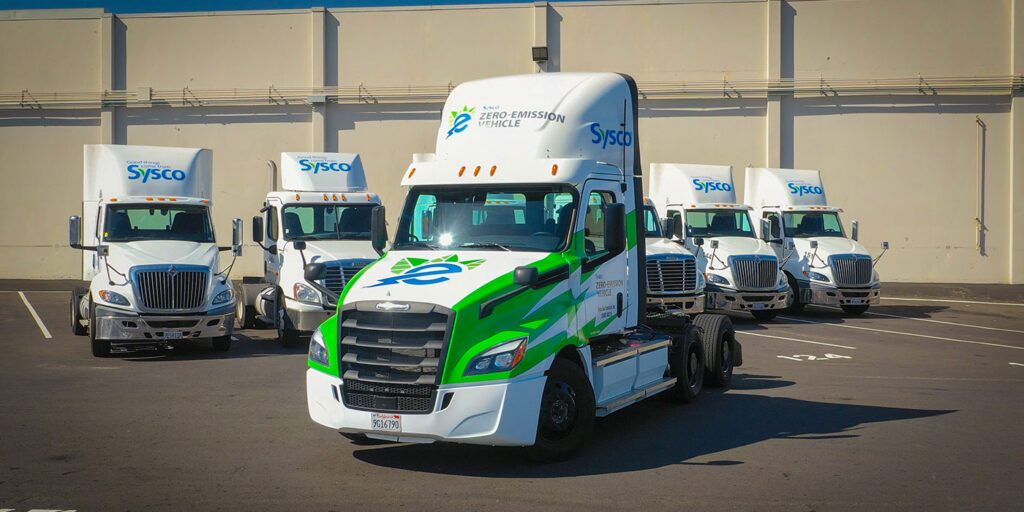
Electric truck adoption, sustainability needs support
The Freightliner eCascadia planted a flag in the sand that Daimler Truck North America is putting its money and manufacturing power where its mouth is when it comes to delivering zero-emissions solutions. And fleets responded. Truck load orders came in from the likes of Penske and Sysco.
There’s a “but” coming, and you probably know what it is.
“Infrastructure is really a limiting factor,” O’Leary said. “We had a lot of customers take delivery of a Freightliner eCascadia. They were super happy with [the truck] and immediately wanted 50 or a 100 more, and then they realized that they don’t have the ability to charge them.”
He stressed that public infrastructure is necessary for continued electric truck adoption. He cited that work with the joint venture between DTNA, NextEra Energy Resources and BlackRock Renewable Power to design, develop, install and operate a nationwide, high-performance charging network for medium- and heavy-duty battery electric and hydrogen fuel cell vehicles in the U.S. is working to address the problem. He also noted that, in a perfect charging infrastructure world, the past year’s eCascadia production demand and capabilities could have been much higher.
“Two thousand [Freightliner eCascadia trucks]. That’s what we could have built and delivered if not for infrastructure issues this year,” O’Leary said.
He was certain that electric truck demand and practical use will increase. DTNA is aiming at a 4,000 electric truck production capability in the short term, but again, it’s hugely dependent on infrastructure. Keep in mind that this is still a small percentage of trucks when the OEM is cranking out 186,000-plus trucks a year.
This year, DTNA will rollout the production series Freightliner eM2 at ACT Expo. Stay tuned for that. We’ll also be hearing more about the last mile electric trucks from Freightliner Custom Chassis Corp. (FCCC). Penske recently took delivery of its first battery electric walk-in van and O’Leary teased that there are more in the pipeline:
“We’re also working with other customers who run trucks like this and that serve the parcel delivery segment. They’re highly interested. We’re working very closely with them and will have news to announce on those deliveries during the course of 2023.”
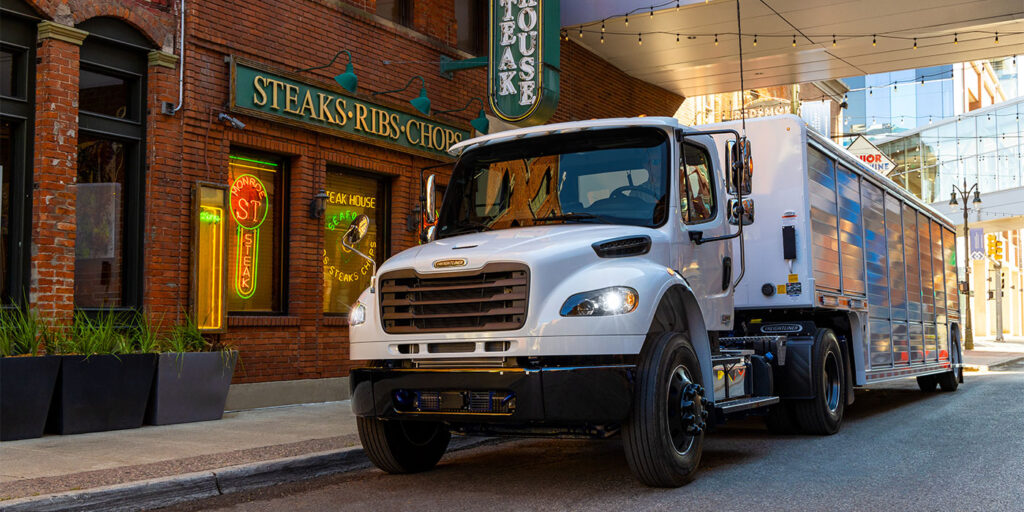
Older trucks on the road, expanding service options and new truck relieve on the way
O’Leary announced that DTNA and Love’s Travel Stops came together for a strategic partnership to provide select services for Freightliner vehicles at approved Love’s Truck Care and Speedco, a member of the Love’s Family of Companies, locations across the country. Authorized Love’s locations will provide light mechanical warranty repair work, roadside warranty emergency services, and approved field service and recall campaigns for Freightliner trucks.
That’s just the latest truck service support feather in the OEM’s cap.
“Our dealers continue to invest and expand,” O’Leary said. “In 2020, our dealers had plans to introduce 40 new or significantly remodeled locations. In total 2022 alone, the DTNA network added 237 service bays. Between this year and 2024, we expect to add approximately 800 additional bays, bringing the DTNA network total up to just about 10,000 service bays.”
Last year, DTNA parts distribution centers handled 18.9 million lines of parts over 2.6 million sales transactions. In the remarketing segment, September saw the doors open on the 41st SelecTrucks location.
“Until we’re able to meet pent up demand for vehicles, customers have no choice but to service them,” he said, noting that DTNA has seen increased lifecycles of trucks across the board. “As newer trucks are brought on board, customers will be pushing them out into the used market fairly quickly.
“Again, we really would prefer to be putting new trucks in the hands of our customers because that’s what they need for their business to be most successful. At the end of the day, a truck is just a tool for one of our customers to make money with; So for them to have the best, newest, greatest, lowest operating cost tools in their hands, that’s what we want to effect.”

